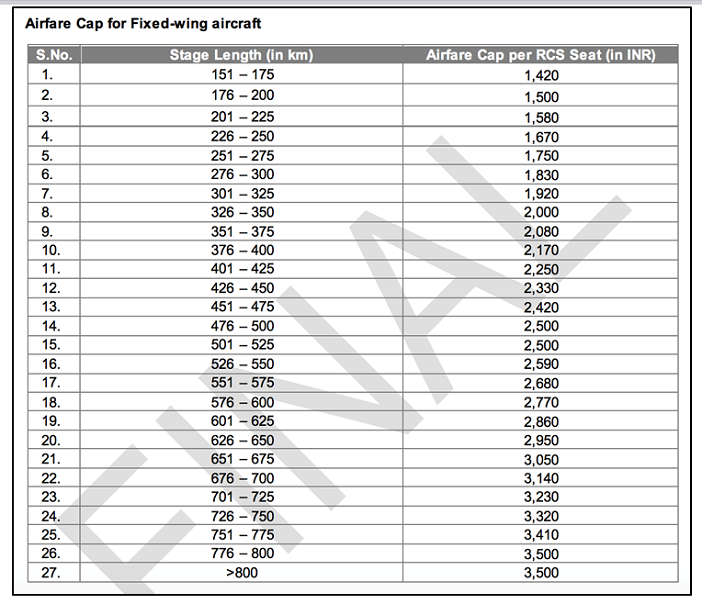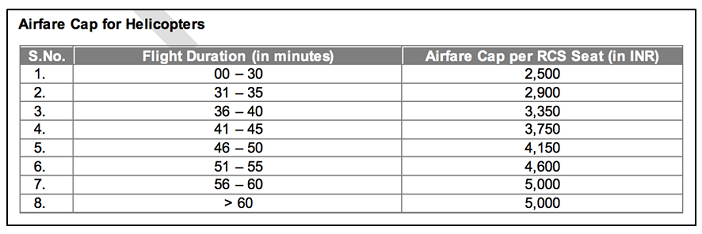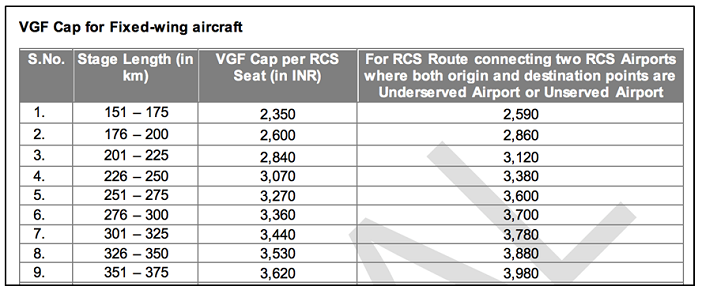[orc]facThe government formally launched the Regional Connectivity Scheme (RCS) and named it UDAN. The scheme aims at increasing connectivity to underserved regions of the country by capping the airfare based on stage length.
The new Civil Aviation Policy released earlier this year proposed a ‘Regional Connectivity Scheme’ (RCS) that seeks to put a cap on the airfare for smaller distances and improve connectivity to various parts of the country. In July this year, the Ministry of Civil Aviation (MoCA) sought feedback on the draft RCS document. Now the MoCA has formally launched the RCS Scheme and named it UDAN (Ude Desh ka Aam Naagrik).
The Guiding Principles of UDAN
The final RCS document mentions the following as the key guiding principles of UDAN.
- Buy-in from the State Government: The RCS will be implemented only in states which commit support by providing concessions/support as required by the scheme.
- Regional Connectivity Fund: The RCF will be funded by a levy or a fee per departure on all domestic flights except those in category II/IIA routes.
- The RCS would be operated through a demand driven mechanism to ensure sustainability of operations.
- There will be a periodic review of the scheme at least once every 3 years.
Concessions to be offered by various Governments
The selected Airline operators under this scheme would be extended the following subsidies from the Central & State governments.
- The central government shall levy an excise duty of only 2% on Aviation Turbine Fuel (ATF) for a period of 3 years.
- State governments shall reduce VAT on ATF to 1% or less for a period of 10 years.
- Security & Fire services shall be provided by the state governments free of cost
- State governments shall share 20% of the Viability Gap Funding (VGF) for RCS routes in the respective state.
- No landing or parking charges at RCS airports
Other concessions would also be extended to airline operators who are selected to be part of this scheme. The scheme also covers Helipads & Helicopters.
The list of RCS Airports/Helipads would be published in due course in consultation with the respective state governments.
Cap on Airfare in RCS routes
The following would be applicable with respect to airfares in the RCS routes. (The RCS routes would be finalized based on a certain set of parameters)
- No levy such as PSF, UDF or DF by the airport operator for all passenger seats on RCS flight.
- Service tax will be levied only on 10% of the taxable value for all passenger seats on RCS flight for a period of one year.
Apart from the concessions, airfare cap has been prescribed in the RCS based on the stage length. The all inclusive airfare cap based on stage length is the following.

Similar cap has also been prescribed in the RCS for helicopters based on the flight duration as noted below.

VGF will also be capped
The Viability Gap Fund (VGF) to be provided for each RCS Seat under the Scheme will be capped for
- Different stage lengths for fixed wing aircraft; and
- Different flight duration for helicopters
The VGF for an RCS route where both the origin and destination points are underserved has been capped at 10% more than the normal VGF for an RCS seat.

The cap on both airfare and VGF has been linked to the Consumer Price Index so that there is no adverse impact of any externality on the scheme.
The RCF would be allocated equitably to various regions of the country so that there is balanced growth. For this purpose, the country will be divided into 5 different regions. The list of underserved airports has also been annexed in the scheme document.
Featured image: By Steven Byles from Singapore, Singapore (VT-ESC A320-232 Air India) [CC BY-SA 2.0], via Wikimedia Commons


